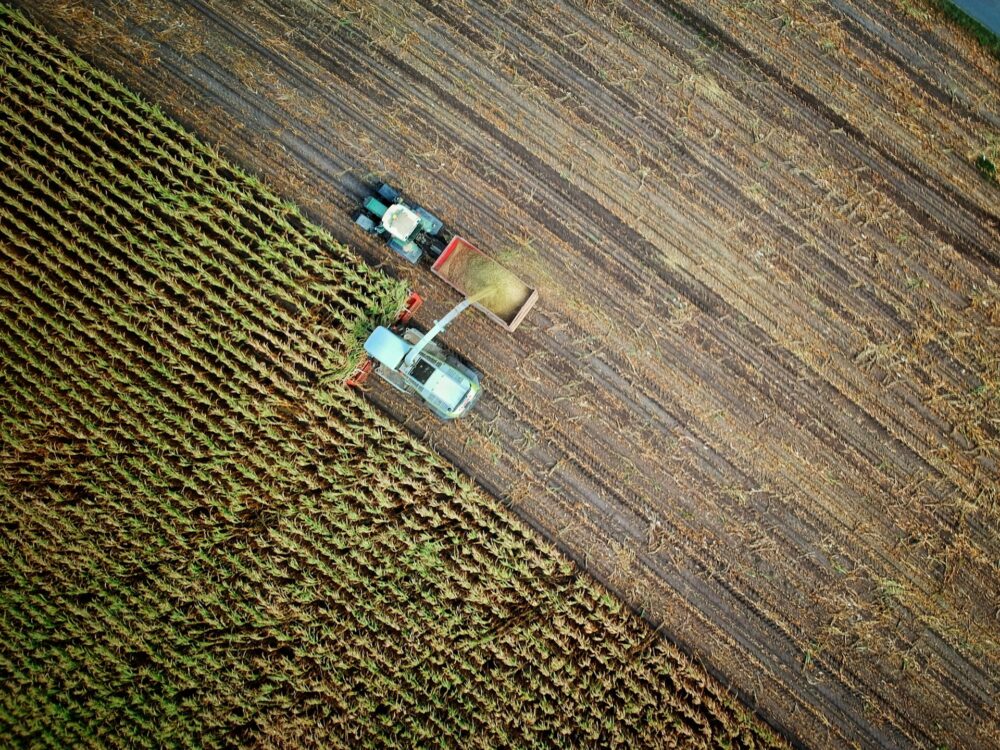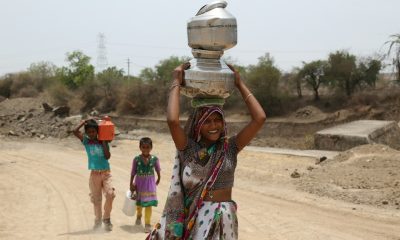Africa
Agroecology in West Africa: Actors in Ouagadougou to Develop a Roadmap for Social Movements
Forty participants from West Africa are developing a roadmap to better coordinate agroecology efforts. At a workshop in Ouagadougou, the importance of agroecology as a solution to the food crisis was emphasized by officials. The event focuses on promoting agroecology in West Africa, with plans to establish a permanent consultation framework for social movements.

The NGO COPAGEN is organizing a regional workshop focused on the development of a roadmap, from July 30th to August 1st, 2024 in Ouagadougou. The official opening ceremony was held this Tuesday, July 30th, 2024.
According to experts, nowadays, agroecology increasingly appears as one of the relevant responses to the major global challenges in terms of environment and economic and social development. Among the Sustainable Development Goals (SDGs), it is included in the vision of improving the performance of agricultural and food systems, food and nutritional security, environment, climate, employment, migration, resilience and adaptation of rural populations vulnerable to climate change.
In Ouagadougou, in the capital of the “country of upright men”, actors are gathered to contribute to strengthening the capacities for action and reaction of social movements favorable to peasant agroecology in West Africa.
During the three days of work, participants will assess the real capacities, potentialities, constraints and limits of networks and platforms favorable to peasant agroecology in West Africa. The meeting in Ouagadougou will also be a question of assessing the real needs of networks and platforms favorable to peasant agroecology in West Africa.
A historic workshop held in Ouagadougou
The forty participants, from several West African countries, will develop, in a participatory and concerted manner, a roadmap for better pooling of actions.
“We hope that the Ouagadougou workshop will remain engraved in gold letters in the annals of the history of the promotion of agroecology in Africa through the framework that will be put in place, given that the expected results are of great importance for the development of this agricultural model today perceived as a way of life,” formulated the focal point of COPAGEN Burkina, Isidore Della.
“The fight is not over”
The head of the agroecology department of the Ministry of Agriculture, Boureima Traoré, representing his supervisory minister, indicated that this mobilization is a duty. “Agroecology is no longer an option but a necessity to which everyone must subscribe. From politicians to farmers, everyone must be able to adopt agroecological practices which, today, represent the panacea for the food crisis that is raging in our countries,” he said.
According to Aïssata Yattara, from COPAGEN Guinea, also a member of the regional coordination group, the integration of agroecology into policies is a fight for the actors. Thus, she gave a history of this fight in several countries on different continents. “The fight is not over. We will continue with advocacy so that there is effective consideration in policies,” she clarified.
Towards the establishment of a permanent consultation framework
The main theme of the meeting opened this morning in Ouagadougou is: “The contribution of social movements in promoting the agroecological transition in West Africa: challenges, issues and perspectives.”
Communicator Mamadou Goïta from Mali will present the theme and lead the discussions.
It should be noted that during this regional workshop, the establishment of a permanent framework for consultation of social movements around peasant agroecology in West Africa will also be discussed.
__
(Featured image by no one cares via Unsplash)
DISCLAIMER: This article was written by a third party contributor and does not reflect the opinion of Born2Invest, its management, staff or its associates. Please review our disclaimer for more information.
This article may include forward-looking statements. These forward-looking statements generally are identified by the words “believe,” “project,” “estimate,” “become,” “plan,” “will,” and similar expressions. These forward-looking statements involve known and unknown risks as well as uncertainties, including those discussed in the following cautionary statements and elsewhere in this article and on this site. Although the Company may believe that its expectations are based on reasonable assumptions, the actual results that the Company may achieve may differ materially from any forward-looking statements, which reflect the opinions of the management of the Company only as of the date hereof. Additionally, please make sure to read these important disclosures.
First published in lefaso.net. A third-party contributor translated and adapted the article from the original. In case of discrepancy, the original will prevail.
Although we made reasonable efforts to provide accurate translations, some parts may be incorrect. Born2Invest assumes no responsibility for errors, omissions or ambiguities in the translations provided on this website. Any person or entity relying on translated content does so at their own risk. Born2Invest is not responsible for losses caused by such reliance on the accuracy or reliability of translated information. If you wish to report an error or inaccuracy in the translation, we encourage you to contact us

-

 Business1 week ago
Business1 week agoDow Jones Breaks 50,000 as Bull Market Surges Amid Caution and Volatility
-

 Impact Investing6 days ago
Impact Investing6 days agoEU Backs 90% Emissions Cut by 2040 and Delays ETS2 Rollout
-

 Crowdfunding2 weeks ago
Crowdfunding2 weeks agoNewcleo Raises $85 Million to Advance Fourth-Generation Nuclear Reactors
-

 Markets1 day ago
Markets1 day agoMarkets, Jobs, and Precious Metals Show Volatility Amid Uncertainty

























